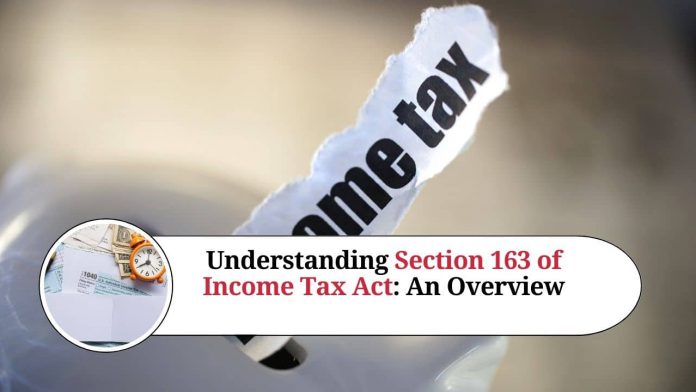Section 163 of the Income Tax Act, 1961 is an important provision that empowers the Central Board of Direct Taxes (CBDT) to establish an authority or authorities for the purpose of exercising such functions as may be prescribed. This section is primarily concerned with the appointment of tax authorities and their powers, duties, and functions. In this blog, we will take a closer look at Section 163 and understand its various provisions.
Appointing Authorities under Section 163
Under Section 163, the CBDT has the power to appoint one or more authorities for the purpose of exercising any of the functions conferred on them by the Income Tax Act. These authorities can be appointed for a specific region or for the entire country. The CBDT has the power to specify the jurisdiction and powers of these authorities.
Powers, Duties, and Functions of Authorities
The authorities appointed under Section 163 have the power to conduct inquiries, gather evidence, and call for information from taxpayers. They also have the power to issue summons and examine witnesses under oath. The authorities can also inspect books of accounts and other relevant documents of taxpayers.
The primary duty of these authorities is to ensure compliance with the provisions of the Income Tax Act. They can initiate proceedings for the assessment or reassessment of income, levy of tax, and collection of tax. The authorities can also initiate penalty proceedings and prosecute offenders for tax evasion.
Appeal against the Orders of Authorities
The orders passed by the authorities appointed under Section 163 are subject to appeal before the appropriate appellate authority. Taxpayers can file appeals against the orders of the authorities within the prescribed time limit. The appellate authority has the power to confirm, modify, or set aside the order passed by the authority. If the taxpayer is still not satisfied with the decision of the appellate authority, they can file an appeal before the higher appellate authorities.
Conclusion
Section 163 of the Income Tax Act is an important provision that empowers the CBDT to appoint authorities for the purpose of ensuring compliance with the provisions of the Act. These authorities have wide-ranging powers and duties to assess, levy, and collect tax, as well as to initiate proceedings for penalties and prosecution. Taxpayers can file appeals against the orders of the authorities, and these appeals are subject to the scrutiny of the appellate authorities. Understanding the provisions of Section 163 is crucial for taxpayers to comply with the Income Tax Act and avoid penalties and prosecution.
Other Related Blogs: Section 144B Income Tax Act
Frequently Asked Questions (FAQs)
Q:1 What is Section 163 of the Income Tax Act?
A: Section 163 of the Income Tax Act pertains to the power of the Assessing Officer to recover tax from a representative assessee.
Q:2 Who is a representative assessee?
A: A representative assessee is a person who is legally authorized to represent another person in income tax matters. For example, an executor or administrator of an estate, a trustee, a guardian, etc.
Q:3 What is the purpose of Section 163 of the Income Tax Act?
A: The purpose of Section 163 is to ensure that tax is collected from the person who is liable to pay it. In cases where the taxpayer is unable to pay the tax, the Assessing Officer can recover it from the representative assessee.
Q:4 What are the conditions under which tax can be recovered from a representative assessee under Section 163?
A: The tax can be recovered from a representative assessee if the following conditions are met:
The tax is due from the taxpayer.
The taxpayer is either dead or cannot be found.
The taxpayer has transferred his property with the intention of avoiding payment of tax.
The taxpayer is a non-resident and has no assets in India.
Q:5 What is the procedure for recovery of tax from a representative assessee under Section 163?
A: The Assessing Officer can issue a notice to the representative assessee, requiring him to pay the tax on behalf of the taxpayer. The representative assessee can file a written objection within 30 days of receiving the notice. If the Assessing Officer rejects the objection, the representative assessee must pay the tax within 30 days.
Q:6 Can a representative assessee be held liable for the tax amount that exceeds the assets of the taxpayer?
A: No, a representative assessee cannot be held liable for the tax amount that exceeds the assets of the taxpayer.
Q:7 What are the penalties for failure to pay tax by a representative assessee under Section 163?
A: If the representative assessee fails to pay the tax, he can be penalized under Section 221 of the Income Tax Act. The penalty can be up to 1% of the tax amount per month, up to a maximum of 12% of the tax amount.
Q:8 Is there a time limit for recovery of tax from a representative assessee under Section 163?
A: Yes, the tax can be recovered from a representative assessee within one year from the end of the financial year in which the tax was due.




















